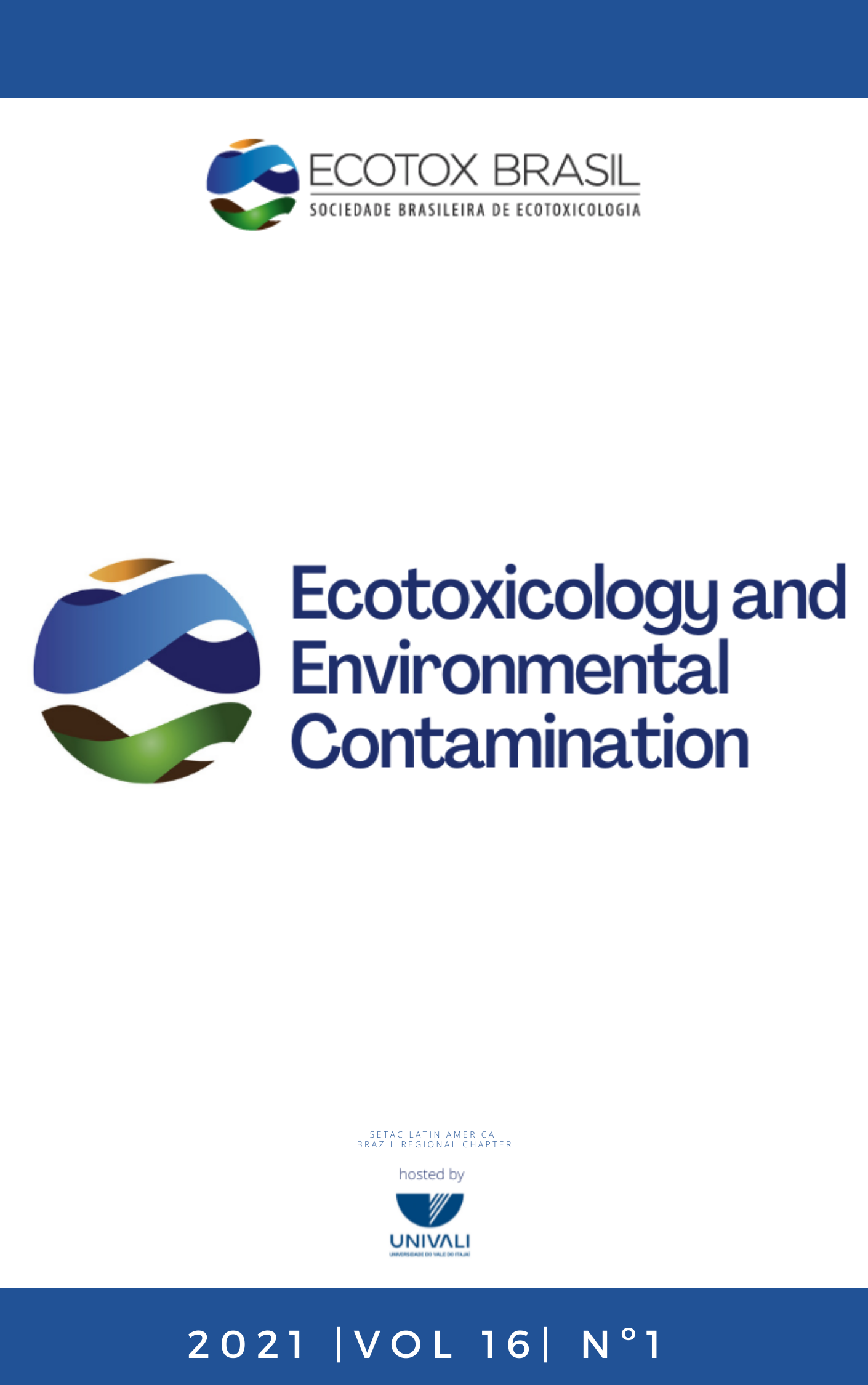Microcystin bioaccumulation in Limnoperna fortunei following Microcystis aeruginosa exposure, analysis of in vivo enzymatic phosphatase, acetylcholinesterase and carboxylesterase effects and in vitro experiments
DOI:
https://doi.org/10.5132/eec.2021.01.05Resumen
Toxic cyanobacteria blooms have been reported in freshwater sources worldwide and may lead to aquatic biota toxin accumulation and trophic chain transfer, resulting in ecological and public health concerns. To assess cyanobacteria effects on microcystin uptake and accumulation and on phosphatase, acethylcholinesterase (AChE) and carboxylesterase (CarbE) enzymatic activities, an in vivo experiment was carried out employing the golden mussel Limnoperna fortunei. These mussels were exposed to a Microcystis aeruginosa NPLJ-4 strain (NPLJ-4) for 48 hours at different cell densities. Subsequently, algal cell counts were carried out and enzymatic activities were assayed. All three enzymes (Phosphatase, AChE and CarbE) were inhibited at the end of the exposure experiment. Mussels exposed to higher in vivo M. aeruginosa densities exhibited microcystin uptake and accumulation. In vitro assays were also carried out, exposing soluble L. fortunei enzyme fractions to M. aeruginosa extracts containing microcystin, and phosphatase inhibition was observed, whereas acetylcholinesterase and carboxylesterase were not inhibited. The results indicate that metabolites other than mycrocystin probably caused the observed in vivo esterase inhibitions, requiring further investigations.Descargas
Descargas
Publicado
Cómo citar
Número
Sección
Licencia
Derechos de autor 2021 Ecotoxicology and Environmental Contamination

Esta obra está bajo una licencia internacional Creative Commons Atribución 4.0.
Copyright © 2006 ECOTOX-Brasil
Copyright notice: It is a condition for publication that manuscripts submitted to this journal have not yet been published and will not be simultaneously submitted or published elsewhere. By submitting a manuscript, the authors agree that copyright for their article is transferred to the Sociedade Brasileira de Ecotoxicologia (ECOTOX-Brasil) if and when the article is accepted for publication. The copyright covers the exclusive rights to reproduce and distribute articles, including reprints, photographic reproductions or any other reproduction of a similar nature, including translations. No part of this publication may be reproduced, stored in a retrieval system or transmitted in any form or by any means, electronic, mechanical, photocopying, recording or otherwise, without permission of the publisher.
Notice: While every effort is made by the EEC, editors and editorial board to see that no inaccurate or misleading data, opinions or statements appear in this journal, they wish to make it clear that the contents of the articles and advertisements published herein are the sole responsibility of the contributors or advertisers concerned. Accordingly, the EEC, the editorial board and editors and their respective employees, officers and agents accept no responsibility or liability whatsoever for the consequences of any inaccurate or misleading data, opinion or statement.




